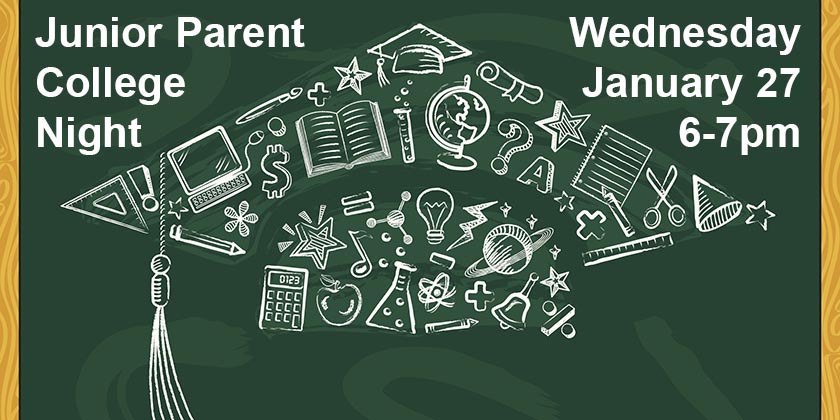
The Junior Parent College Night has been rescheduled for Wednesday, January 27 from 6-7 p.m. Here is information about the event:
This month, SGS college counselors Happy Avery and Kerry Clark will start working with 11th grade students on next year’s college admissions cycle. They know that junior parents have many questions and concerns regarding the college admissions process as well. Please join them on MS Teams to learn more about the process overall and priorities for this spring and summer.
This meeting is designed for parents of current juniors who are preparing to apply to college next fall, but all Saint George’s parents are welcome and encouraged to attend, as it’s never too early to plan and gather information. If you didn't receive an email from Happy or Kerry, contact them at happy.avery@sgs.org or kerry.clark@sgs.org for the MS Teams link. And if you can’t attend, they will record the meeting and follow up with a link to share.
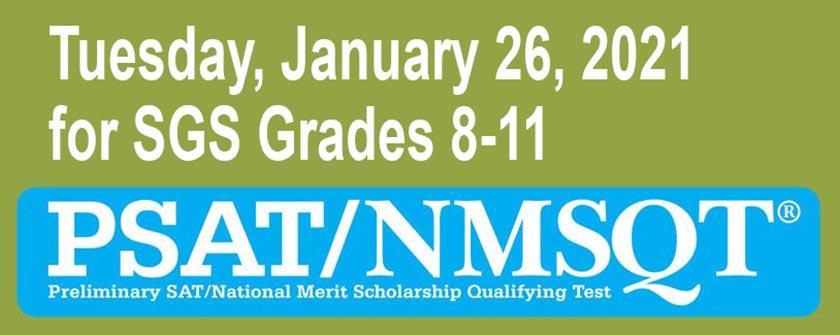
The PSAT test day for grades 8-11 is Tuesday, January 26. SGS will have a normal school start time of 8:20 a.m. and students will be dismissed when their testing session is completed, roughly at 12:30 p.m. Please wait along the curb, as usual for pick-up. The 9th and 10 grade students were given classroom assignments last Friday, including rosters showing the room number where they will go on the morning of the test. All 11th graders will report to the US library for the test. Students should report to their assigned room by 8:20 a.m. when they get to school on Tuesday, as testing will begin promptly.
Students need to bring two sharpened #2 pencils (not mechanical) and an approved calculator that they are familiar with. Students will need to leave their phones, bags, snacks, water bottles, etc., outside of the testing room in the hallway or at their locker. There will be breaks between tests for drinks and snacks. Student PSAT guides have been placed in each student's school mailbox with test tips and practice questions. See College Counselor Kerry Clark's Email from 1-21-21 to parents and students for details on approved calculators, what to bring and not bring to the testing room, and links to the College Board’s PSAT website and Test day checklist.
NOTE: 12th graders will spend the morning of Jan. 26 in the Founders Theater working on IB projects (Individual Assessment, Extended Essay, and TOK essay). Then from 12-3pm they will be in teacher classrooms working on IAs and other work they need to complete.
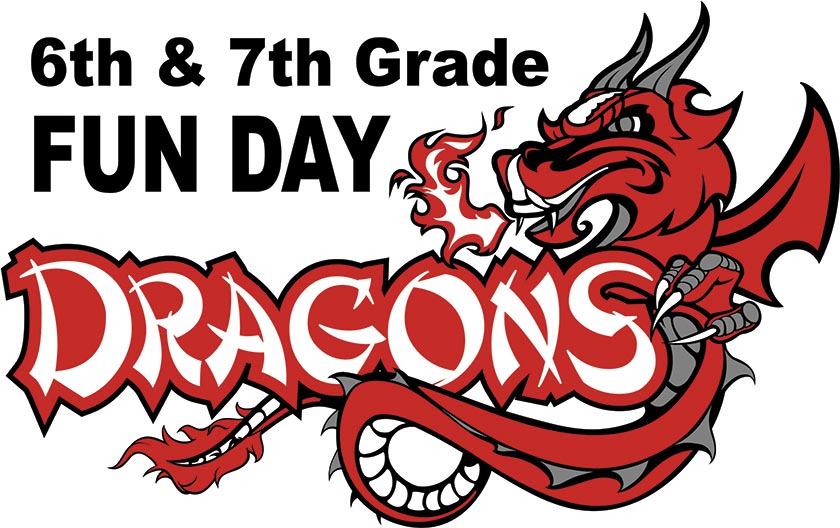
While grades 8-11 are taking the PSAT on Tuesday morning, Jan. 26, the 6th and 7th graders will have Dragon Fun Day activities to choose from. These include an Outdoor activity (snow sports, game, hike) depending on the weather (wear outdoor clothing and bring a water bottle and snack), a Racket Sports tournament (either pickleball or badminton) in ESAC, a Virtual Game that distance learning and in-person students can join, or a Study Hall for students to get work done before the end of the semester. Students will have time to participate in two of these activities before being dismissed from school at Noon. Refer to a parent email from MS Head Joelle Neiwert for more details. Go MS Dragons!

Semester 1 ends this Thursday, January 28. All Upper School students' CAS (Creativity, Activity, Service) experiences should be recorded and submitted to their advisors by Thursday. Friday, Jan. 29 is a Teacher In-Service Day, so there are no classes for grades K-12. Students can enjoy a long weekend!
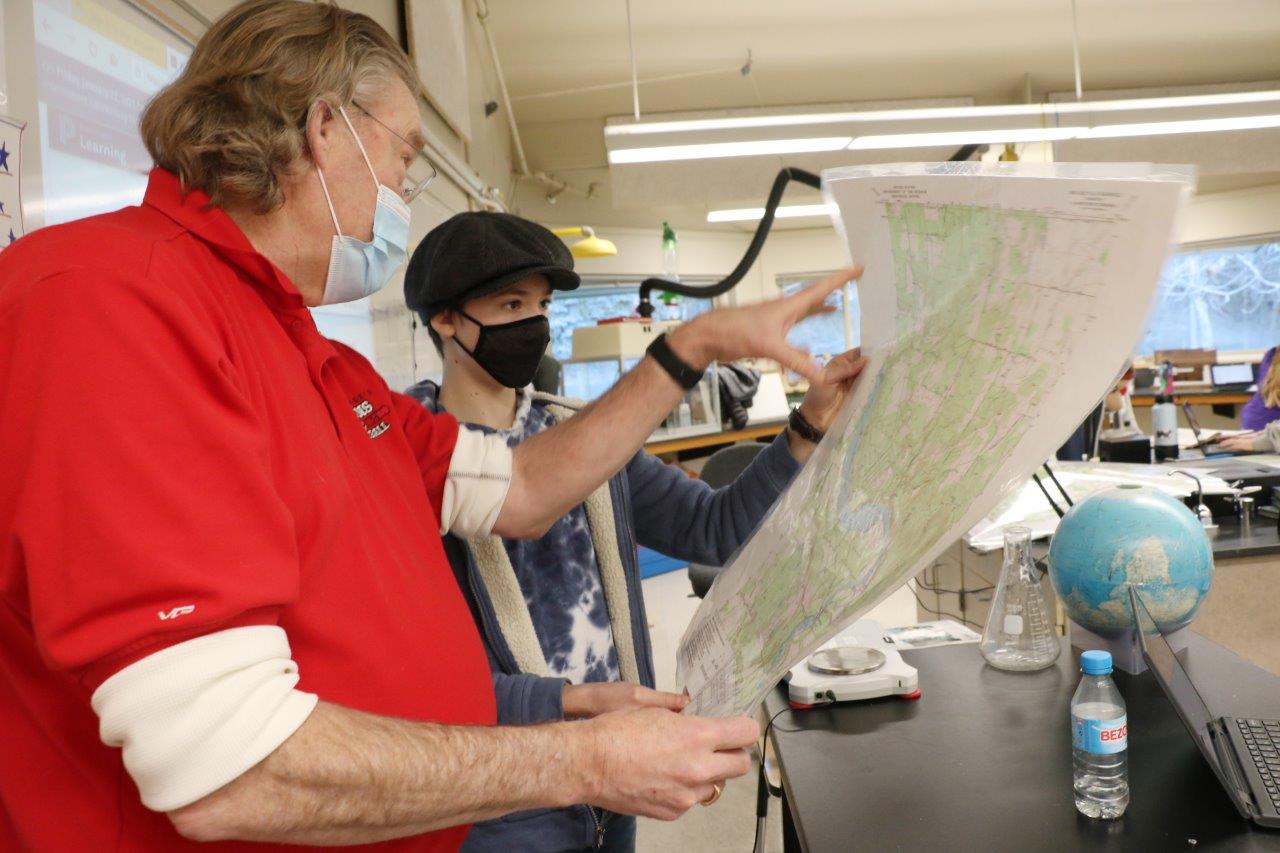
Mr. Hutchinson's 7th grade Science class spent time learning to read the contour lines and details on USGS section maps of the Saint George's and Nine Mile Falls areas. See a Photo Gallery of the students in his class, and learning from home, finding locations on the maps and recording them on their tablets.
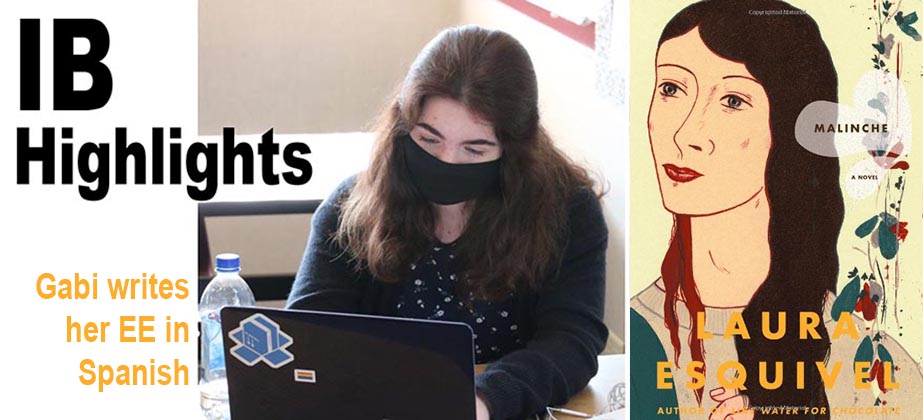
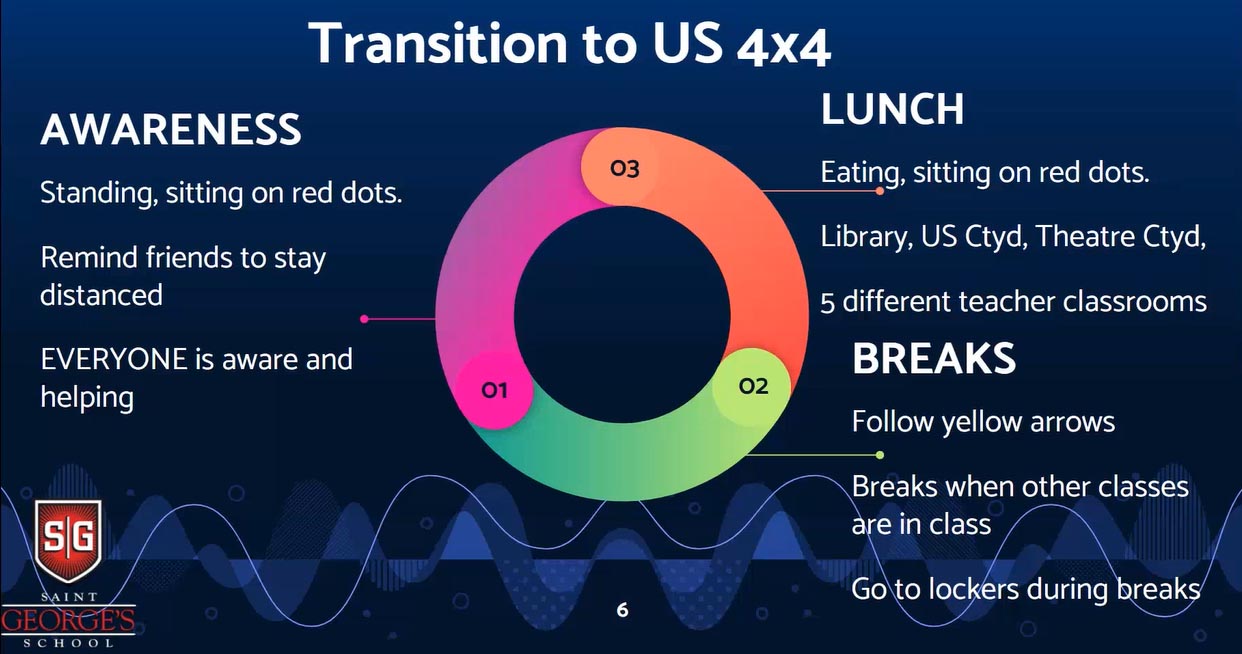
Saint George's will begin bringing students back to the Upper School in a staggered roll-out. This week (Jan. 11), grades 11 and 12 are invited to learn on campus Tuesday through Friday. Grades 9 and 10 will learn on campus Thursday and Friday. Next week (Jan. 19), grades 9-12 are invited to learn from campus on Tuesday through Friday. See more details on Dr. Francesca Mulazzi's Weekly Letter.
In order to bring students back to campus safely, we have three focus points for students:
Awareness: Be conscientious of the distance between you and your friends; stand and sit on red dots, walk along the yellow arrows.
Breaks: Be aware of your friends and neighbors when you are at your locker and in the hallway; stand on a dot when possible, walk along the yellow arrows; teachers will let students out on breaks in staggered breaks.
Lunch: Sit in one of the eight designated areas: US Courtyard, Library, Theatre Courtyard, or five classrooms designated as lunch zones, sit and eat at a red dot.
Thank you, parents and families, for your patience as we have waited for the right time to move to this next step.

An SGS senior has used the International Baccalaureate Diploma Programme to set up a program to reduce stress in her neighborhood -- with therapy bunnies and tea!
CAS Project Highlight: Senior Erika Piotrowski has developed a Bunny Outreach Program that she will run for two months. This will be a neighborhood stress release program with her pet bunnies as therapy animals. She plans to individually schedule people for the program, then show up wearing a mask and bringing a folding table. She will set the rabbit and some tea on the table then move six feet back. The neighbor, who is wearing a mask, will help themselves to refreshments and will be able to interact with the bunny. In conjunction, they will discuss their day and any other light-hearted topics. Erika has already discussed this program with some neighbors to gauge interest, and they all seem really enthused by it.
CAS Experience Highlights: CAS experiences for all of our Upper School students (in the US and in China) include cooking clams, delivering cookies, making rings, shadowing a parent at work for a day, skiing, participating in a community night, making dessert, volunteering at 2nd Harvest, making a snowman, solving a Rubik’s cube, and walking dogs.
EE Highlight: Senior Sophie Yao is doing her Extended Essay on a topic in Economics. She is discovering the pros and the cons of her EE question: To What extent does passing out coupons to citizens influence the general merchandise industry in Hangzhou, China. She came up with the idea because Hangzhou’s government was passing out an electronic coupon through a site called Alipay. Most of the citizens had successfully obtained the coupon, including Sophie’s mother, which sparked her interest in her research topic.
IB Question of the Week: Can you explain a little more the difference between HL and SL courses?
With humor, see the picture below:
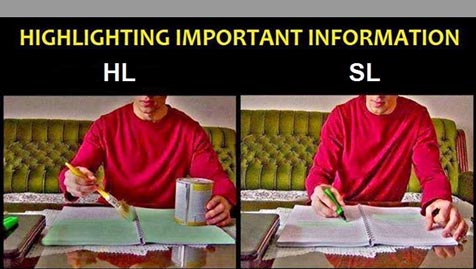
But seriously, follow this link to see the brief on HL and SL courses: https://www.ibo.org/globalassets/publications/recognition/slhl-brief-en.pdf
“It is essential for any pre-university education to equip students with the depth of discipline-specific knowledge and skills that they will need for their chosen academic and career paths. However, this must be balanced with the breadth needed to develop well-rounded students who can draw connections between the different disciplines.
"As such, the philosophy of the IB DP is that students should engage with a range of subjects while being able to explore specific areas of personal interest in greater depth. SL courses ensure students are exposed to a range of disciplines that they might otherwise opt out of, and HL courses allow students to spend more time with subjects they are more interested in by exploring options in addition to the SL core curriculum. In this sense, all DP courses, regardless of whether they are SL or HL, are integral to the programme.”
IB Overview: The Diploma Programme (DP) curriculum for grades 11-12 is made up of six subject groups and the DP core, comprising Theory of Knowledge (TOK), Creativity, Activity, Service (CAS) and the Extended Essay (EE). Please refer to our IB webpage and to the IB Resources page in PowerSchool Learning for detailed IB information.
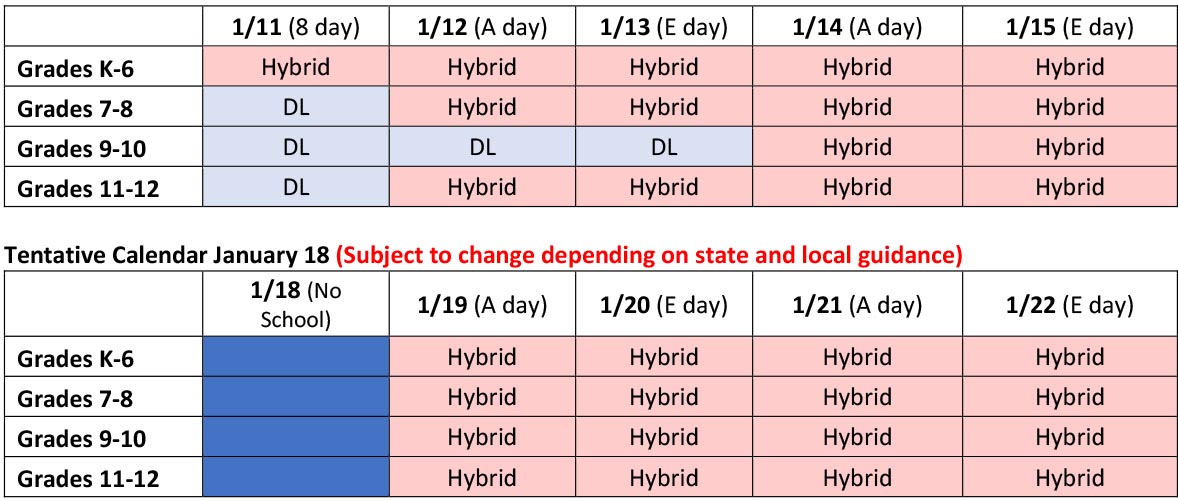
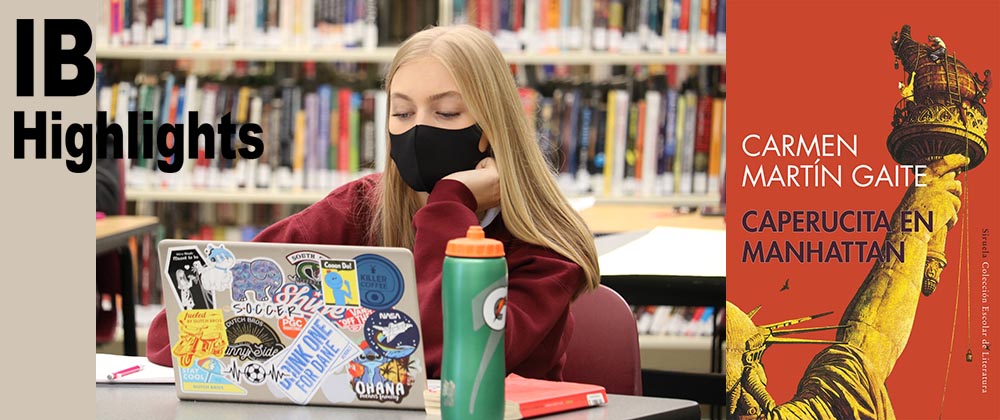
An SGS senior has used the International Baccalaureate Diploma Programme to explore the meaning of characters created by a major Spanish author.
EE Highlight: Senior Cambrie Rickard is writing her Extended Essay on the book Caperucita en Manhattan (Little Red Riding Hood in Manhattan) by Carmen Martín Gaite, one of the most important and influential Spanish authors of the 20th Century. Cambrie is writing about the representations of freedom (libertad) and solitude (soledad) in the novel as portrayed by some of the characters, especially Miss Lunatic.
CAS Project Highlight: Reagan Ivey and Adelaide Lennemann will be starting a clothing drive to donate clothes to the Teen and Kid Closet. They will promote the drive with posters and other means and will deliver the donations to the closet. The drive will run for 2-3 weeks. Details will be coming out soon.
CAS Experience Highlights: CAS experiences for all of our Upper School students (in the US and in China) include the lifetime fitness class, learning to sew, skiing on Mt. Spokane, learning about human trafficking and making care packages w/ Spokane Girl Up Club, OUR, and International Network of Hearts, restarting the writing center, skiing, setting up Christmas lights, building a snowman, playing ping pong, doing Among Us drawings, painting a picture, and creating a game server.
IB Question of the Week: What is the IB doing about exams during the pandemic?
The IB continues to release updated guidance for schools regarding assessment since the pandemic started. Their documents aim to supplement the subject guides and existing teacher support material (TSM) for DP subjects and to share guidance and advice on how teachers can support students working remotely to undertake this work.
Last year, the IB established a non-exam route as a result of the pandemic and came up with a course grade for students using their Internal Assessments (IAs), predicted grades from teachers, and past predicted grade reliability.
Schools who tested in November 2020 were given the guidance that they could opt in or out of exams. If they opted into exams, a student’s course grades would be based on their exams, IAs, predicted scores and past predicted grade reliability. If schools opted out, course grades would be based on IAs, predicted grades and past predicted grade reliability, like in May 2020.
The IB has not yet sent official and final guidance for the May 2021 cohort. They have told schools to look at the guidance given to November 2020 schools for what to expect. Schools have been told by the IB to expect an official guidance to be released in late January/early February. So far, for the May 2021 cohort, it is official that all IAs will be sent to the IB examiners, and not just a sampling as in a normal year. We are waiting to hear about the exam and non-exam choices and routes.
IB Overview: The Diploma Programme (DP) curriculum for grades 11-12 is made up of six subject groups and the DP core, comprising Theory of Knowledge (TOK), Creativity, Activity, Service (CAS) and the Extended Essay (EE). Please refer to our IB webpage and to the IB Resources page in PowerSchool Learning for detailed IB information.
Latest News | Page 2 | Page 3 | Page 4 | Page 5 | Page 6 | Page 7 | Page 8 | Page 9 | Page 10 | Page 11 | Page 12 | Page 13 | Page 14 | Page 15 | Page 16 | Page 17 | Page 18 | Page 19 | Page 20 | Page 21 | Page 22 | Page 23 | Page 24 | Page 25 | Page 26 | Page 27 | Page 28 | Page 29 | Page 30 | Page 31 | Page 32 | Page 33 | Page 34 | Page 35 | Page 36 | Page 37 | Page 38 | Page 39 | Page 40 | Page 41 | Page 42 | Page 43 | Page 44 | Page 45 | Page 46 | Page 47 | Page 48 | Page 49 | Page 50 | Page 51 | Page 52 | Page 53 | Page 54 | Page 55 | Page 56 | Page 57 | Page 58